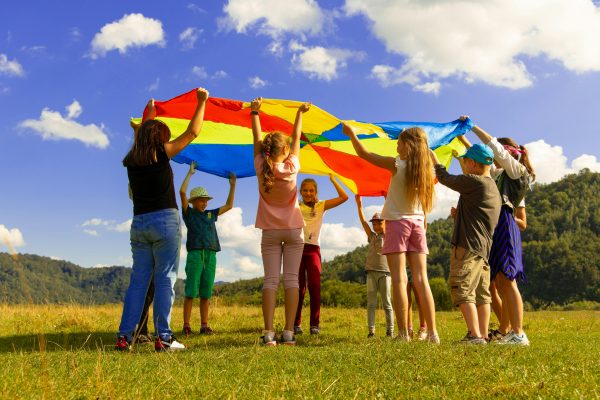Travel Blogging
The Benefits of Summer Camps for Child Development

Summer camps are a cherished tradition, offering more than just a break for parents and fun for children. They are vibrant hubs where young minds expand through a variety of activities and interactions. In the UK, summer camps have evolved to cater to diverse interests, supporting child development in multifaceted ways. From enhancing social skills to fostering independence and nurturing specific talents, the impact of these camps on a child’s growth is profound. This article explores how these fun-filled getaways contribute significantly to the developmental milestones of children, ensuring that each camp experience enriches them for life.
Fostering Independence
Summer camps are an excellent platform for children to explore the realms of independence in a controlled and safe environment. Away from the familiar settings of home and school, children learn to make decisions, manage their daily routines, and handle minor challenges without constant parental guidance. This shift from dependence to self-reliance is crucial in shaping young, confident individuals who are prepared to navigate the wider world. The skills they acquire at camp lay a foundation for self-sufficiency that benefits them throughout their lives.
Enhancing Social Skills
In the context of family adventure holidays, summer camps act as a microcosm of society where children learn vital social skills. Interacting with peers from varied backgrounds fosters an understanding of diversity and encourages teamwork and empathy. As children engage in group activities and shared living quarters, they learn the art of communication, conflict resolution, and co-operation. These social skills are critical in developing emotional intelligence, which helps them build and maintain healthy relationships throughout their lives.
Boosting Physical Health
Physical activity is a staple of most summer camps, providing children with ample opportunity to engage in exercise that is both fun and invigorating. Whether it’s swimming in a lake, climbing ropes, or playing team sports, these activities promote physical health and instil a habit of fitness. Regular physical activity not only enhances muscular strength and cardiovascular health but also improves mood and mental health. The active lifestyle encouraged at camp can lead to lifelong habits of health and wellness.
Encouraging Intellectual Curiosity
Summer camps often offer a range of educational programmes that spark intellectual curiosity and complement academic learning. Through workshops, science experiments, and environmental explorations, children are encouraged to discover new interests and pursue knowledge outside the traditional classroom setting. This exposure to diverse subjects and hands-on learning experiences helps cultivate a love for learning and critical thinking skills, essential for academic success and problem-solving in everyday life.
Developing Resilience
The camp environment challenges children in a supportive setting, allowing them to take risks and face failures in a safe space. Overcoming homesickness, trying new activities, and resolving peer conflicts are all experiences that build resilience. Learning to bounce back from setbacks and to persevere through difficulties teaches children the value of grit and determination. These are invaluable life skills that prepare them for the inevitable challenges of life, ensuring they grow into resilient adults.
Cultivating Creativity
Summer camps provide an ideal environment for nurturing creativity. Through activities such as arts and crafts, drama, music, and dance, children are encouraged to express themselves artistically. This creative expression is crucial for cognitive development and can help children in problem-solving and innovation. Engaging in creative tasks also allows children to explore their talents and interests, potentially uncovering lifelong passions or hobbies. The supportive atmosphere at camp makes it a safe space for children to experiment and showcase their creativity without fear of judgment.
Promoting Environmental Awareness
Many summer camps are set in natural surroundings that offer children a unique opportunity to connect with the environment. Activities like hiking, canoeing, and wildlife watching help instill a respect for nature and teach children about the importance of environmental conservation. This hands-on learning experience can foster a lifelong commitment to ecological stewardship and an appreciation of the outdoors. Understanding and appreciating the environment can also enhance a child’s overall empathy for global issues and encourage responsible behavior.
Enhancing Leadership Skills
Leadership skills are another significant benefit of attending summer camps. Older children often have opportunities to lead younger campers, whether through formal roles, like camp counsellors, or informally in activities. This responsibility promotes leadership qualities such as responsibility, confidence, and the ability to motivate and care for others. Developing these skills in a camp setting can translate into improved performance in school and other community involvements, paving the way for future leadership opportunities in various life areas.
Learning Time Management
At summer camp, children follow a structured schedule that requires them to manage their time effectively. They must balance activity participation with adequate rest, personal hygiene, and social interactions. Learning to manage time from a young age helps children become more organized and efficient, skills that are invaluable in academic and personal life. The discipline learned through managing a daily schedule at camp also helps children handle their responsibilities more independently.
Building a Sense of Community
Summer camps are miniature communities where children learn the importance of mutual respect, cooperation, and tolerance. Living and working together with peers from diverse backgrounds promotes a sense of community and helps children understand the value of inclusivity and community support. These experiences teach children to contribute positively to society and to value the benefits of living and working harmoniously with others.
Conclusion
Summer camps offer a robust platform for child development, encompassing physical, intellectual, emotional, and social growth. The experiences children gain from their time at camp equip them with skills and values that resonate through all aspects of their lives. Whether it’s through fostering independence, enhancing social skills, promoting physical health, encouraging intellectual curiosity, or developing resilience, the benefits of summer camps are profound and lasting. By sending a child to summer camp, parents invest in an enriching experience that moulds their children into well-rounded and capable individuals, ready to take on the world with confidence and creativity.
